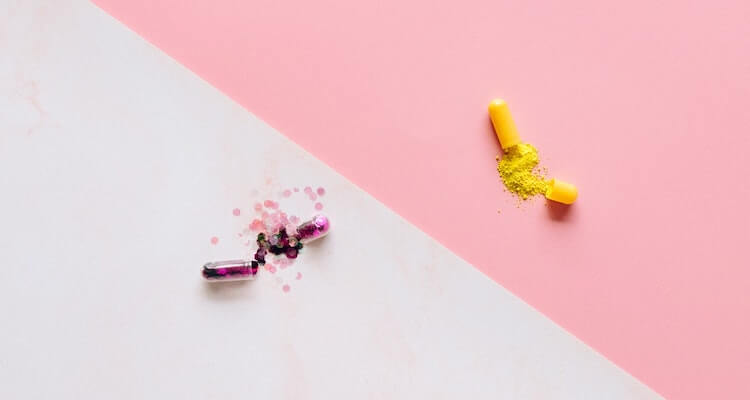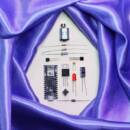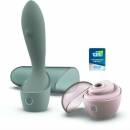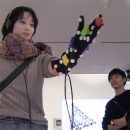How embracing my ADHD led to better orgasms
After years of orgasm-free sex, it surprised me to learn that I could teach my body new tricks despite my ADHD brain.

When I chose my first vibrator, I made the same mistakes everyone did.
I was never told that bigger is not always better and I had no idea that my ADHD would influence the type of toy I needed. So I didn’t have an orgasm with another person until I was 28 or a toy until I was 34.
I was ten when I was diagnosed with ADHD and it became a source of real contention in my life. It felt embarrassing to be told you were uncontrollable or strange, especially as a young adult. By the time I got to college, I was so mortified about being neurodiverse and determined to go it alone without support. I didn’t disclose it at school, in jobs, with partners, or friends.
When I started to have sex, I would hear the creak of the bed, outside noises or the smell of the lube, which would make me feel nauseated. My thoughts would literally scream that I was terrible in bed, I look fat, or even reminded me how much work I had to do over and over again. I gave up trying to orgasm but hoped instead I could just get through it and move on to my next dopamine hit. I tried everything from pegging and threesomes to bondage in a bid to find ‘my niche.’
This was also happening with sex toys and masturbation as I couldn’t reach an orgasm nearly as earth-shattering as the ones my friends mentioned. Sales assistants were not trained about sex toys for disability or neurodiversity when I first bought a toy. Many still aren’t.
Later on, I started to work as a sex tech journalist reporting on developments in devices. Companies sent me boxes of brightly coloured, creative toys. Through experimenting, I began to switch out my toys to reflect this while educating myself on how my ADHD worked. I realized that the design of the toy itself needs to be simple and avoid overwhelming me otherwise I won’t pick it up. I need a stronger toy with a firmer texture and powerful vibrations that can get me off faster before I become distracted.
Re-learning to masturbate also affected my sex life. By having that time to educate myself and mess around with toys, I learned that the masturbation tricks could also be applied to my experiences with others. I began to introduce toys to my sex life with different partners. I’ve become confident to move hands or ask for what I need because I know what that is now. While it doesn’t work every time, it works a lot of the time meaning I orgasm far more easily than I used to.
Once I started to own my diagnosis, I actively told my partners that I have ADHD. The right person will understand you need extra cuddles or more time. If they are right for you then they will embrace it, but they need to know about it to be able to do that.
Because I publicly write about sex and ADHD, others have shared with me their disappointment about toys they own or how they felt pressured into buying certain toys by staff in stores. They wondered why their bodies were different and couldn’t orgasm. I believe that there is a huge change needed in the industry. Staff need better education on disability and toys. This includes knowledge about texture, noise, and intensity for neurodiverse people. I want to see more articles like this. I have lost track of the number of editors who believe one article on disability and sex a year is ‘too much’ or that neurodiverse people don’t enjoy kinky sex or bondage.
These conversations and learning about my body and my ADHD are ongoing. I still realize so much about myself through experimenting—but that’s only really begun in the last year after embracing my diagnosis.
Instead of fighting my brain, I work with it and the results have been a revelation.
Image Sources: Nataliya Vaitkevich
















